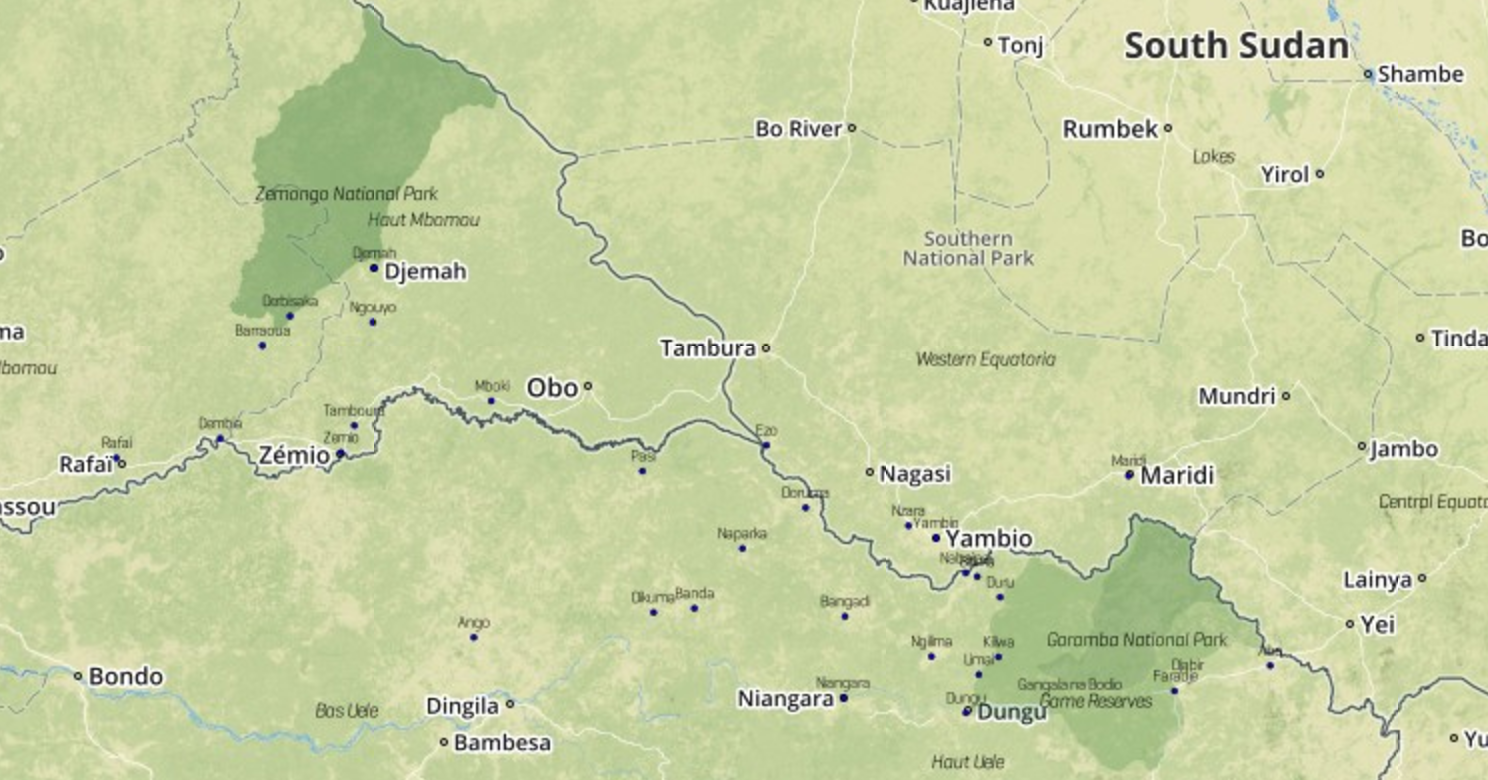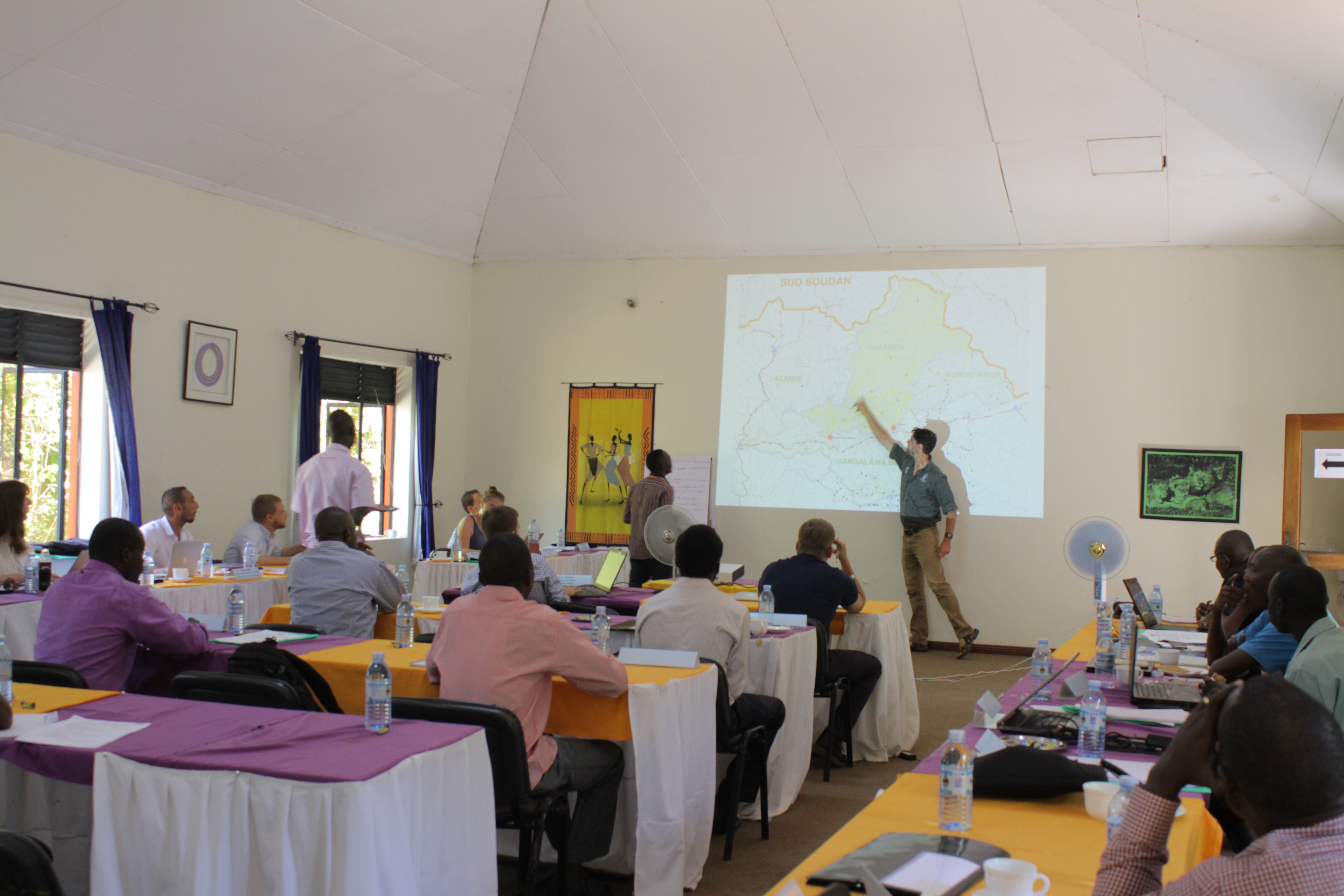No matter where in the world you look, there is no doubt that humans are critically dependent on the natural world to survive and thrive. This dependence is particularly stark in remote areas like in central Africa, where thousands of families depend on livelihood activities that are directly connected to their natural environment — including farming, cattle-herding, hunting, fishing, and mining. Unfortunately, armed groups often share this same dependence on natural resources to sustain themselves and their activities. Their exploitation of regional wildlife, minerals, and other natural resources often coincides with violence against local populations.

Families living in the border region connecting Central African Republic (CAR), the Democratic Republic of Congo (DRC), and South Sudan depend on the land for daily survival. Access to clean water sources and to land on which to farm, graze livestock, hunt, and mine for minerals such as gold and diamonds are essential to sustain themselves and their families. However, because communities in this part of the world are isolated and neglected, they are highly vulnerable to armed groups and other criminal networks seeking to exploit the region’s rich natural resources including endangered wildlife and precious minerals.
Groups like Joseph Kony’s Lord’s Resistance Army (LRA), ex-Seleka rebels, and heavily armed professional poachers from areas like Sudan engage in illegal poaching and other forms of natural resource exploitation to fund their activities. These criminal activities also often involve targeting communities with violent attacks. The resulting insecurity, as well as unsustainable wildlife poaching, cuts off community access to the resources on which they depend. In many cases, it can become dangerous, especially for women and other marginalized groups, to access fields and water sources because they become more vulnerable when leaving the relative safety of community centers. Since January 2016, our LRA Crisis Tracker project has recorded 239 attacks targeting civilians engaged in livelihood activities in their fields or hunting, fishing, or herding cattle in “the bush.”

With over a decade of experience working with vulnerable communities facing violence, we know that the solutions to these challenges will come from local communities themselves and that, through collaboration with conservation and protection partners, those solutions can be realized.
That’s why, last fall, we brought traditional and civil society leaders from CAR, DRC, South Sudan, and Uganda together with international conservation partners in the region for a workshop on improving security for local communities and the natural world around them. At the workshop, participants were able to enhance their shared understanding of the challenges facing local communities and how they’re intertwined with those facing conservation actors. By coming together to understand these challenges, community leaders and conservation actors were able to collaborate on solutions that can help protect both people and wildlife.

In the workshop, participants identified and collaborated on solutions for two main areas of need. First, due to isolation and a lack of infrastructure in the area, conservation actors struggle to access timely information on poaching activity. This makes it much easier for armed groups to carry out illegal poaching and wildlife trafficking activities. Since the workshop, we’ve begun to work alongside conservationists and community partners in and around Garamba National Park in DRC to improve communication on security threats by training members of our Early Warning Network on how to safely and responsibly report signs of poaching through the network. We are then able to share information from these reports with conservation actors in the area so that they are able to take steps to prevent further trafficking and protect communities surrounding protected areas.
The second need participants identified was for community education on the effects of poaching and ways in which local community members can take part in preventing illegal trafficking and in pursuing more sustainable livelihoods. Part of this is accomplished through our Early Warning Network trainings, but we’ve also been able to develop and carry out additional sensitization workshops with members of local protection committees. These workshops are helping bring lessons learned from our larger workshop to local communities and provide information on how participants can help keep their families and their environment safe and healthy through pro-conservation livelihood activities.
Through ensuring that local communities are equipped to take an active role in conservation, we’re helping ensure that vulnerable communities, who are often the most affected by the exploitation of wildlife and natural resources, are able to protect their families and prevent violence so that their children and the natural world they rely upon have a safer, more vibrant future.
JOIN US BY SUPPORTING PROGRAMS LIKE THESE THROUGH A MONTHLY GIFT
Think people should hear about this?